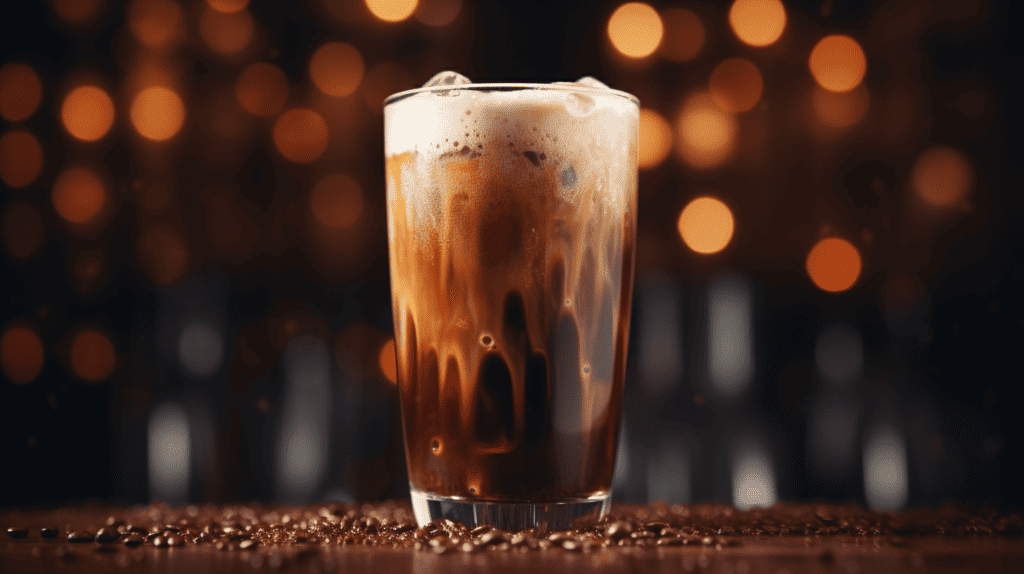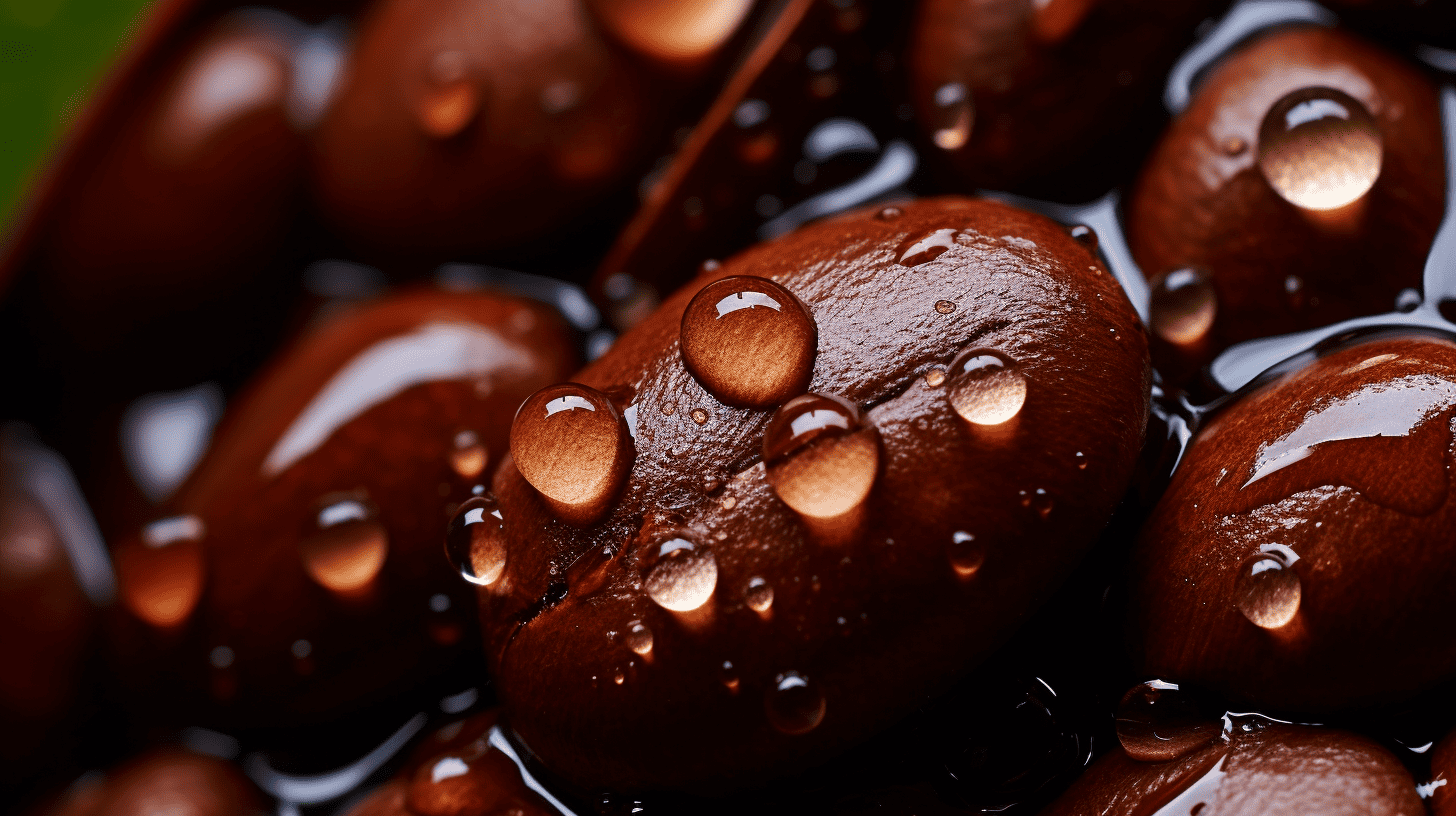Ah, the morning conundrum – coffee compared to Red Bull to jumpstart your day? Believe me, I’ve been there too. In my quest for the ultimate energy booster, I discovered some fascinating truths about both beverages.
This blog post dives into their nutritional content, caffeine levels and health effects. Trust me; this is a brew you won’t want to miss!
Key Takeaways
- Coffee contains antioxidants, is low in calories, and has more caffeine compared to Red Bull.
- Red Bull provides a quick energy boost due to its caffeine content but also contains sugar and may have negative health effects if consumed in excess.
- Both coffee and Red Bull can improve alertness and concentration, but moderation is key for enjoying the benefits while minimizing any potential risks.
Nutritional Comparison
When comparing the nutritional content of Red Bull and coffee, it is important to consider their differences in calories, sugar, and additional ingredients.
Red Bull
Red Bull is a popular drink, just like coffee. This energy drink comes in a can and has about 80 mg of caffeine. That’s not as much caffeine as most coffees have. But watch out! Red Bull also has sugar and more B vitamins than coffee does.
It gives you an energy boost just like your morning cup of joe would, but with extra stuff added in. Some people like this because it can help perk them up when they’re feeling tired or need to focus on something important for work or school.
Coffee
I love coffee. It’s my go-to beverage in the morning for an energy boost. Coffee contains antioxidants and is low in calories, which makes it a healthier choice compared to energy drinks like Red Bull.
The caffeine content in coffee can vary, but on average, a cup of coffee contains around 85-100 mg of caffeine per 240 mL. That’s more than what you would find in a can of Red Bull, which typically has about 80 mg of caffeine.
So if you’re looking for a way to stay alert and focused throughout the day, coffee might be the better option for you.
Caffeine Content
Red Bull contains a higher caffeine content compared to coffee, providing an intense energy boost.
Red Bull
Red Bull is a popular energy drink that many people enjoy for its ability to provide an instant boost of energy. It contains important B vitamins that can help support your overall health.
However, it’s worth noting that Red Bull is higher in calories compared to coffee. When it comes to caffeine content, Red Bull has about 80 milligrams per can, which is similar to a regular cup of coffee.
If you’re comparing a single shot of espresso with Red Bull, the energy drink may have more caffeine. It’s important to consider your personal preference and individual health considerations when choosing between Red Bull and coffee for an extra pick-me-up during the day.
Coffee
I love coffee! It’s a beverage that many people enjoy in the morning to help them wake up and start their day. Coffee contains antioxidants, which are good for your health, and it is low in calories.
The caffeine content in coffee can vary, but on average, a cup of coffee has about 85-100 mg of caffeine. This amount of caffeine gives you an energy boost and helps improve alertness and concentration throughout the day.
So if you’re looking for a delicious way to get some extra energy in the morning, I highly recommend grabbing a cup of joe!
Health Effects
Red Bull is known to have potential negative health effects, such as increased heart rate and blood pressure, while coffee has been linked to positive outcomes such as improved cognitive function and reduced risk of certain diseases.
Effects of Red Bull on health
Red Bull can have both positive and negative effects on your health. Here are some important things to consider:
- Increased energy: Red Bull contains caffeine and other stimulants that can provide a temporary energy boost.
- Improved alertness: The caffeine in Red Bull may help you feel more awake and alert, especially when you’re feeling tired.
- Enhanced performance: Some studies suggest that Red Bull can improve physical and mental performance, helping you stay focused and perform better in tasks.
- Increased heart rate: The caffeine in Red Bull can cause your heart rate to increase, which may be a concern for those with heart conditions or high blood pressure.
- Dehydration: Red Bull is a diuretic, meaning it can increase urine production and lead to dehydration if consumed in large quantities.
- Sugar content: Energy drinks like Red Bull often contain a high amount of sugar, which can contribute to weight gain and dental problems if consumed regularly.

Effects of coffee on health
Coffee can have various effects on our health. Here are some important things to know:
- Coffee contains antioxidants that can protect our cells from damage caused by harmful substances called free radicals.
- Drinking coffee in moderation has been linked to a lower risk of certain diseases, like Parkinson’s disease and type 2 diabetes.
- It may also help improve mental focus and concentration, as the caffeine in coffee stimulates the central nervous system.
- Some studies suggest that coffee consumption may be associated with a reduced risk of liver cirrhosis and liver cancer.
- However, it’s important to note that excessive coffee intake can lead to negative effects like anxiety, sleep disturbances, and digestive issues.
- Coffee is also a diuretic, which means it can increase urine production and potentially cause dehydration if consumed in large amounts.
Pros and Cons
Pros and cons of drinking coffee include increased alertness and improved concentration, but can also lead to dependence and disrupted sleep patterns. Similarly, Red Bull provides an immediate energy boost but may have negative health effects if consumed in excess.
Pros and cons of drinking coffee
Pros of drinking coffee:
- Coffee provides an energy boost to start the day.
- Coffee can increase alertness and improve concentration.
- Coffee may enhance performance during physical activities.
- Coffee contains antioxidants, which are beneficial for overall health.
- Coffee is a low – calorie beverage, making it a better choice for weight management.
Cons of drinking coffee:
- Excessive coffee consumption can lead to caffeine dependence and withdrawal symptoms.
- Drinking too much coffee can cause restlessness and difficulty sleeping.
- Some people may experience increased heart rate and blood pressure from caffeine in coffee.
- Coffee stains teeth and can contribute to dental issues if consumed in excess.
- Adding sugar or creamers to coffee can increase calorie intake and negate its health benefits.

Pros and cons of drinking Red Bull
Drinking Red Bull can have both advantages and disadvantages. Let’s take a look:
- Energy Boost: Red Bull provides a quick energy boost due to its caffeine content, helping to combat tiredness and increase alertness.
- Performance Enhancement: The caffeine in Red Bull can improve physical performance and concentration, making it a popular choice among athletes.
- Convenience: Red Bull is widely available and convenient for those who need a quick energy fix on the go.
- Variety of Flavors: Red Bull offers a range of flavors, providing options for different preferences.
- High Sugar Content: One downside of Red Bull is its high sugar content, which can lead to weight gain and other health problems if consumed in excess.
- Temporary Effects: The effects of Red Bull are temporary, so the energy boost may wear off quickly, leaving you feeling more tired than before.
- Dependency Potential: Regular consumption of Red Bull may lead to dependency on caffeine, resulting in withdrawal symptoms when not consumed.
- Health Concerns: Some studies suggest that excessive intake of energy drinks like Red Bull may be linked to heart problems and other health issues.
Conclusion on Coffee Compared To Red Bull
In conclusion, when comparing coffee to Red Bull, it’s important to consider their nutritional content and caffeine levels. Coffee is low in calories and contains antioxidants, while Red Bull has more B vitamins.
While both provide an energy boost, coffee generally has more caffeine than a can of Red Bull. Ultimately, the choice between the two depends on personal preference and individual health considerations.
FAQs on Coffee Compared To Red Bull
1. Is coffee or Red Bull better for energy?
Coffee is generally considered better for providing sustained energy due to its higher caffeine content and natural compounds, whereas Red Bull’s energy boost comes primarily from added sugar and synthetic ingredients.
2. Which drink has more caffeine – coffee or Red Bull?
Coffee typically contains more caffeine than Red Bull, with an average cup of coffee containing around 95mg of caffeine compared to a can of Red Bull which contains about 80mg.
3. Are there any potential health risks associated with consuming coffee or Red Bull?
Excessive consumption of both coffee and Red Bull can lead to negative effects such as increased heart rate, anxiety, insomnia, and dependency on caffeine. It is important to consume these beverages in moderation.
4. Can I substitute one drink for the other if I need an energy boost?
While both drinks provide an energy boost, it ultimately depends on personal preference and tolerance to caffeine. It’s important to consider their different ingredients and effects on your body before substituting one for the other.





Leave a Reply